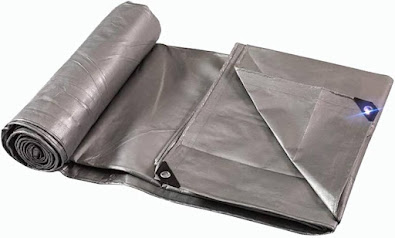Agricultural Tarpaulin Sheet Applications
Why Use Agricultural Tarps?
There are a couple of key green tarping applications that give significant advantages to farmers and the general yield collection. Utilizing Tarpaulin is a flexible practice that safeguards crops from regular weights and controls significant microclimates. A portion of the essential reasons farmers execute tarp innovations include:
Crop and Soil Protection from Harsh Weather
Farms arranged in areas with variable or outrageous environments can experience hurt from environment occasions like heavy deluges, hail, ice, or burning power. Tarps give an impediment that safeguards fragile gathers and soil from these components. By making preparations for enduring, tarps safeguard crop wellbeing and augment yield potential.
Temperature Regulation for Season Extension
Farming tarps are strong for adjusting microclimates. Lighter-concealed tarps grant the sun to go through and warm the air, while hazier tarps trap heat. This enables managed nursery-like conditions ideal for beginning exchanges previously or expanding harvest times at one or the other side of the commonplace developing season.
Weed Suppression
Covering soil with Tarpaulins abilities is a genuine impediment that blocks weed seeds from growing. This reduces work costs connected with mechanical or substance weed control procedures. Tarped soils have less weed pressure even after tarp expulsion.
Water Conservation
The plastic surface of farming tarps decreases dissipation and augments soil soddenness support. This is advantageous during dry season slanted periods as well as jam water framework speculations by limiting water adversity. Legitimate Heavy Duty Tarpaulin inclusion cuts water utilization by 20-half compared with unseen soils.
Types of Agricultural Tarps
There are a couple of typical sorts of Heavy Duty Tarpaulin sheets arranged expressly for plant purposes, each with its benefits:
Plastic Tarps
Thick polyethylene plastic tarps are sturdy and the best for applications requiring a watertight obstruction. Frequently assessed for enduring 3-5 years, plastic tarps are constantly used for treating soils to control nematodes, weeds, and vermin masses prior to planting.
Agrifiber Tarps
Woven from polypropylene or polyester strands, agrifiber tarps are lightweight breathable, and best for applications where the gas/soddenness exchange is significant, similar to ice and bug security. They help direct microclimates without taking an opportunity at development.
Silage Tarps
Delivered using elastic treated polyester or heavy-duty polyethylene, silage tarps have upheld wrinkles and grommets for securing. Their oxygen-restricting properties make them ideal for wrapping silage stores and dugouts during ensiling to work with vigorous aging and feed protection.
Tarp Applications by Crop Type
How agricultural tarps are executed depends colossally upon the specific yield being developed. Here are some ordinary tarp utilizes tweaked for different farming areas:
Row Crops
Various vegetable line harvests, for instance, tomatoes, peppers, winter squash, and melons benefit significantly from guarded occasional covers. Tarpaulins help with managing soil temperature for earlier relocating and expanded yields. They similarly monitor touchy verdant food varieties from hurt by deluges, wind, and ice.
Orchards
Organic item tree plantation crops are exceptionally feeble against spring frosts that can pulverize entire sprout sets and decrease creation for an entire year. Particularly tied down tarps give modest ice protection to plantations, frequently really raising the under-overhang temperature by only a couple of key degrees.
Vineyards
Grape plants used for wine and raisin creation are covered during frail blossoming and aging periods. Tarpaulins UK support ideal muggy microclimates and safeguard grapes from unreasonable sun openness, wind, and precipitation that spread infection or mischief regular item quality.
Silage Crops
Heavy-duty silage tarps are essential for ensiling high-sogginess scrounge crops like corn, sorghum, and little grains into high-thickness, anaerobically developed feed for creatures. Legitimate tarp fixing is vital to forestall rot during aging and stockpiling.




Comments
Post a Comment